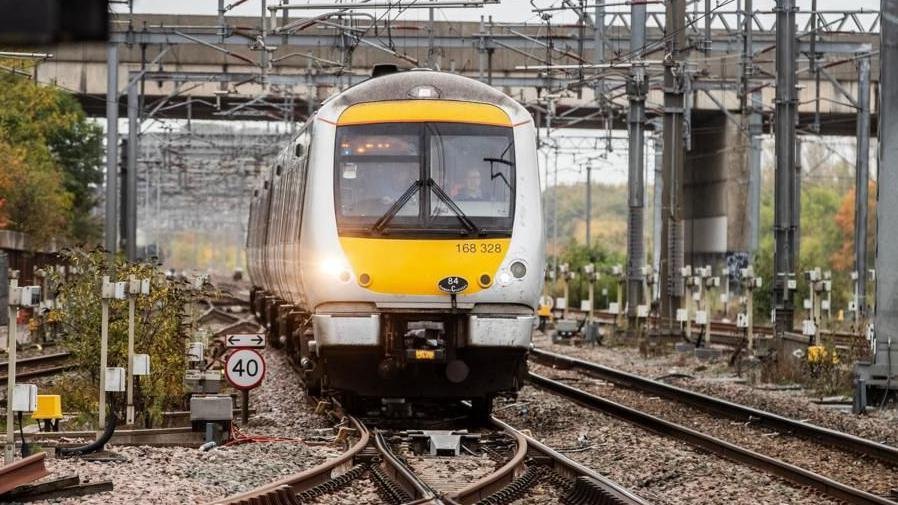The UK Government’s recent reclassification of a major rail investment plan has caused some controversy, particularly in Wales. Political representatives assert that the UK Government’s decision to classify the HS2 high-speed rail project as “England and Wales” – even though no infrastructure will happen in Wales- effectively means that the Welsh Government is no longer entitled to consequential funding of any significance. This paper explores the factual background, political implications, and wider socio-economic impacts of this development while exploring the legal and political context around this budget classification.
HS2 (High Speed 2) is a significant rail infrastructure project which will connect London with major cities in the Midlands and Northern England, especially Birmingham, Manchester, and Leeds. Originally intended to address regional inequality and increase rail capacity HS2 is one of the largest infrastructure projects in Europe with costs estimated to exceed £100 billion.
Under the devolutionary funding mechanism in the devolved administrations of the UK, projects classed as “England only” typically result in Barnett consequentials (funding for the devolved administrations of Scotland, Wales, or Northern Ireland) being allocated on the basis of the level of funding allocated to England. However, if the project is classified as “England and Wales” with no consequential funding for Wales being declared or committed then, under the same devolutionary funding mechanisms, what it should mean is reduced or no consequential funding for Wales.
The key question surrounds the factual claim that HS2 is good for Wales. A House of Commons Library analysis from 2021 notes that HS2 infrastructure does not extend into Wales and benefits to Welsh passengers, such as better connections, are indirect and limited. Scotland benefits from Barnett consequentials from HS2 spending, because it is classed as an ‘England only’ project, yet does not have any track investment (directly) either.
Plaid Cymru, some Welsh Labour MPs, and even the Welsh Government, maintain that this is inconsistent, and unfair (and they feel Wales has lost out on as much as £5 billion as lack of track based investments). The UK Government insists that benefits for Wales, through betterening UK-wide connections, means the current classification is valid. However there is only limited empirical evidence that shows a significant impact in Wales, as a result of HS2.
This dispute demonstrates the tensions between devolved administrations and central Governments in the Uk. The UK Treasury classifies spending, and devolved administrations have limited ability to contest this classification. In the UK there have so far been calls for change over the Barnett Formula, and the devolution finance system, based on events such as this.
The financial implications for Wales are large. The failure of Barnett consequentials as a result of HS2 means Wales loses out economically, countless billions could be put into developing rail infrastructure, in particular on rail upgrades in under-funded parts of Wales like Mid and North Wales. Some people argue that this cements economic inequalities and creates delays in efforts to transition to climate-friendly, contemporary transport.
Socially, the situation has the potential to exacerbate existing dissatisfaction and political alienation in Wales; particularly at a time when we are seeing rising levels of nationalist sentiment. Tangentially, it adds additional complexity to intergovernmental relationships and could impact positive opportunities for intergovernmental cooperation on future discussions relating to transport, energy and economic development.
When considering HS2 as an ‘England and Wales’ project, despite very little changing for Wales, it raises some important issues regarding relationships, and tensions, within the devolved funding architecture in the UK. The UK Government that made the rail infrastructure investment is clear that the benefits of HS2 are UK benefits, but analysis shows that Wales receives little direct economic benefit from HS2. Given the level of UK government funding going into building HS2 without any additional funding for Wales, concern about fairness, regional economics, and what this means for the sustainability of existing arrangements is warranted.
This is a case that suggests some degree of change is needed; clearer rules and ramifications, greater transparency and perhaps ultimately a reset regarding infrastructure funding in a devolved political structure.
For more news, visit Questeuro.com

More Stories
Why Europe Is Watching India’s Trade Negotiations Closely Amid US Pressure
Why India’s Bilateral Trade Deal Focus Could Reshape EU-India Economic Ties
Why Brussels Is Watching India’s Trade Stance Amid EU Relations